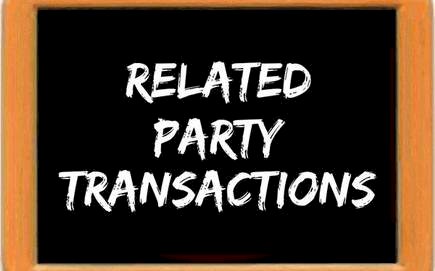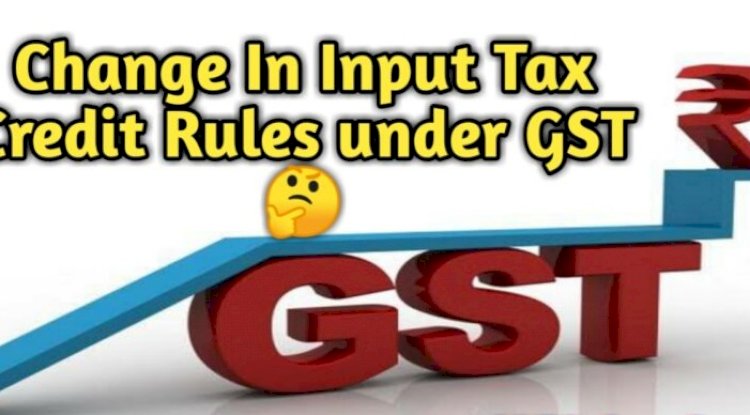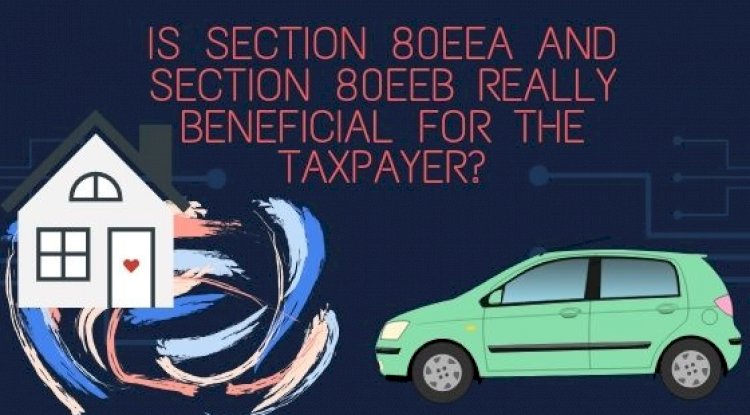Related Party Transaction

Nowadays, mostly problem is raising between the Related parties and their transactions with companies, and the problem is undue advantages taken by management with their shareholders or the owner of the company, due to this undue advantages shareholder has to bear big amount loss, and due to this undue advantages taken by the management resulting in injustice with shareholders or owner of the company.
Now there some provisions are made for an undue advantage so that no one has to face this problem, Under this provision order to ensure proper compliance and Disclosure of Related Party Transactions.
Now, there are various types of questions arise i.e.
Who is a Related Party?
The definition of related party is defined under various act, there is some definition of a related party:-
As per section 2(76) of Companies Act,2013:
As per company reference, Related Party means:-
- A director of a company or relatives of a companies director
- Companies key managerial personnel Or his relatives.
- A firm where director or manager or his relative is a partner:
- A Private Limited Company, where a director or manager or their relative is a member of a company or a director of a company.
- A public company, where a director or manager act as a director or with their relatives holds more than 2% of its paid-up share capital;
- A body corporate whose Board of Director, or managing director or manager is act as a advicer of a company or direction or instruction of a director or a manager;
- Any person on whose advice, directions or instructions a director or manager is accustomed to act;
- Any company which is
- A holding, subsidiary or an associate company, or
- a fellow subsidiary; or
- A venture of the company or investing company
(1) There are such person as may be prescribed as Related Party
- Father (including step-father)
(2) Mother (including step-mother)
(3) Son (including step-son)
(4) Son’s wife
(5) Daughter
(6) Daughter’s husband
(7) Brother (including step-brother)
(8) Sister (including step-sister)
There is some notification from the Ministry of Corporate Affairs dated 05/06/2015, The purpose of section 188, a Holding Company, Subsidiary Company, and Associate Company is not considered as related parties to a Private Limited Company and hence they shall be exempted from compliances to be followed under Section 188.
Related Parties as considered according to Standard 18:
- There are include enterprises that directly, or indirectly through one or more intermediaries, control, or are controlled by, or are under common control with, the reporting enterprise.
- Associates and joint ventures of the reporting enterprise and the investing party or venturer in respect of which the reporting enterprise is an associate or a joint venture;
- Individuals owning, directly or indirectly, an interest in the voting power of the reporting enterprise that gives them control or significant influence over the enterprise, and relatives of any such individual; [Shareholding SI = 20% or more Voting Power]
- Key Management Personnel and relatives of such personnel; [KMP = MD, WTD and any persons in accordance with whose directions or instructions the Board is accustomed to act.] {Non-Executive Directors are not considered as KMP}
- If any person which is considered in (c ) & (d)
Related Parties as considered according to Standard 18:
A person is considered as Related Party who is preparing a financial statements
- A person who is preparing a financial statement, his close member of that person family is related to a reporting entity is considered as Relative Party;
- That person has control over a reporting entity
- That person has a right to influence the reporting entity
- That person who is a member of key management personnel of that reporting entity.
- There are some conditions if it applies then we can say that an entity is related to reporting entity.
- The member of the entity and the related entity is the same group.
- One entity is an associate or joint venture of the other entity
- The entity and related entity both are a joint venture of the third party.
- One entity is considered as a joint venture of the third entity and another entity is considered an associate of the third entity.
- The purpose of the entity is a benefit plan for the benefit of employees either the reporting entity or an entity related to the reporting entity.
- A person who is preparing a financial statement, his close member of that person's family is related to a reporting entity is controlled or jointly controlled the entity.
- That person has control over a reporting entity that has significant influence over the entity or is a member of the key management personnel of the entity.
According to Accounting Standards, there are some following which is not considered as Related Party;
- If there are two entities who have a common director or KMPs, that two is not considered as Related Party.
- The person who share joint control on the same joint venture that person is not considered as Related Parties.
- The person who is included in Providers of finance, trade union, public utilities, or government departments, simply by virtue of their normal dealings, they are not considered as Related Parties.
- The person who is included in a Major Customer, franchisor, distributor or agent, simply by virtue of resulting economic dependence, they are not considered as Related Parties.
As per SEBI Regulation,2015, There are some points who considered of Related Parties;
According to SEBI Regulation 2015 act, the Related Parties dines under section 2 (76) of the Companies Act 2013, or under the Accounting Standards
According to the Income Tax Act,1961;
In section 2 (41) has defined the term ‘Relative’ as the husband, wife, brother or sister or any lineal ascendant or descendant of that individual.
The Relative Parties and its associates are defined under Section 40A(2)(b);
- In case an individual is an assessee, relative of the individual;
- In case if the assessee is a partner of the firm, Director of the company or member of the association or any relative to such that director, partner whether it is Associates/HUF/Firm/company is considered as Relative Parties.
- If there is any individual or his relative who has an interest in any business and profession of assessee.
- a company, firm, association of persons or Hindu undivided family having a substantial interest in the business or profession of the assessee or any director, partner or member of such company, firm, association or family, or any relative of such director, partner or member or any other company carrying on business or profession in which the first-mentioned company has a substantial interest;
- a company, firm, association of persons or Hindu undivided family of which a director, partner or member, as the case may be, has a substantial interest in the business or profession of the assessee; or any director, partner or member of such company, firm, association or family or any relative of such director, partner or member;
- The person who carries on a business or profession,-
- If there is any individual or his relative who has an interest in any business and profession of assessee.
- where the assessee is a company, firm, association of persons or Hindu undivided family, or any director of such company, partner of such firm or member of the association or family, or any relative of such director, partner or member, has a substantial interest in the business or profession of that person.
Explanation; - the subsection is made for the purpose of a person shall have an interest in business and profession.
A person who carried a business or profession by a company and that person having a beneficial owner of the share at any time of previous year, but that share shall not be less than 20% of the voting power.
In other cases, if a person who carried a business or profession by a company and that person having a beneficial owner of the share at any time of the previous year, but that share shall not be less than 20% of the profits of such business or profession.
Related Party, in relation to a Corporate Debtor, means –
- the person who is a director or partner of the corporate debtor or a relative of a director or partner of the corporate debtor;
- the person who is key managerial personnel of the corporate debtor or a relative of key managerial personnel of the corporate debtor;
- the person who is a limited liability partnership or a partnership firm in which a director, partner, or manager of the corporate debtor or his relative is a partner;
- a private company in which a director, partner, or manager of the corporate debtor is a director and holds along with his relatives, more than two percent. of its share capital;
- a public company in which a director, partner, or manager of the corporate debtor is a director and holds along with relatives, more than two percent. of its paid-up share capital;
- any body corporate whose board of directors, managing director or manager, in the ordinary course of business, acts on the advice, directions or instructions of a director, partner or manager of the corporate debtor;
- any limited liability partnership or a partnership firm whose partners or employees in the ordinary course of business, acts on the advice, directions or instructions of a director, partner or manager of the corporate debtor;
- a person on whose advice, directions or instructions a director or manager is accustomed to act;
- a body corporate which is a holding, subsidiary or an associate company of the corporate debtor, or a subsidiary of a holding company to which the corporate debtor is a subsidiary;
- any person who controls more than twenty percent. of voting rights in the corporate debtor on account of ownership or a voting agreement;
- any person in whom the corporate debtor controls more than twenty percent of voting rights on account of ownership or a voting agreement;
- the person who has a right or who can control the composition of the board of directors or corresponding governing body of the corporate debtor;
- any of the person who is associated with the corporate debtor on account of-
- for making a corporate debtor the process of participation of policy.
- Having more than two directors in common between the corporate debtor and such person; or
- interchange of managerial personnel between the corporate debtor and such person; or
- provision of essential technical information to, or from, the corporate debtor
What is the Transaction of Related Party?
The transaction which is involved in the company and its Related Parties are known as Related Party Transactions. There are various types of laws have been specified which is considered as Related Party Transaction.
According to Section 188 of the Companies Act, 2013:
There are the following contract between a company and related parties-
- Sale, purchase, or supply or any goods or materials.
- Selling, buying a property of any kind.
- Leasing of property of any kind.
- Availing or rendering of any services.
- Appointment of agent for purchase or sale of goods, materials, services or property
- Appointment to any office or place of profit in the company/Associate Company /Subsidiary Company.
- Underwriting of securities.
According to Regulation 2 (ZC) of SEBI Regulations 2015;
Whether the price has been charged or not but Related Party transaction shall be a transfer of resources or obligations between the Company and Related Party.
According to Indian Accounting Standard-24:
Whether the price has been charged or not but Related Party transaction shall be a transfer of resources or obligations between the Company and Related Party.
These compliances shall be followed under the Companies Act,2013
The Board of Directors shall give approval of Related Party Transaction u/s 188. Wherever an audit committee appointed at that time audit committee shall approve all transactions with Related Parties. For a Related Party, the committee may also make Omnibus Approval.
A company shall not enter into a contract or arrangement with any related party except with the prior approval of members of the company by Ordinary Resolution (Rule 15(3)) for the following transactions:
- Sale, purchase or supply of any goods or materials directly or through the appointment of agents amounting to 10% or more of the Turnover of the Company.
- selling or otherwise disposing of, or buying, the property of any kind directly or through the appointment of agents amounting to 10% or more of the Net worth of the company.
- leasing of property of any kind amounting to 10% or more of turnover of the company.
- availing or rendering of any services directly or through the appointment of agents amounting to 10% or more of the turnover of the company.
- appointment to any office or place of profit in the company, it's a subsidiary company or associate company at a monthly remuneration exceeding two and a half lakh rupees.
- remuneration for underwriting the subscription of any securities or derivatives thereof of the company exceeding one percent of the net worth.
Related Party Transaction Policy under SEBI (Listing Obligations and Disclosure Requirements) Regulations, 2015
There are some important points which we should keep in our mind while formulating of Policy on Related Party Transactions:
What is the Materiality of Related Party Transactions?
According to Regulation 23(1), the policy of materiality of related party transactions shall be formulated by the listed entity, on dealing with related party transactions including clear threshold limits duly approved by the board of directors and such policy shall be reviewed by the board of directors at least once every three years and updated accordingly.
A transaction with a related party shall be considered material if the transaction(s) to be entered into individually or taken together with previous transactions during a financial year, exceeds ten percent of the annual consolidated turnover of the listed entity as per the last audited financial statements of the listed entity.
A transaction involving payments made to a related party with respect to brand usage or royalty shall be considered material if the transaction(s) to be entered into individually or taken together with previous transactions during a financial year, exceed five percent of the annual consolidated turnover of the listed entity as per the last audited financial statements of the listed entity.
Omnibus Approval of Related Party Transactions
As per Regulation 23(3)(a), Audit Committee shall lay down the criteria for granting the omnibus approval in line with the policy on related party transactions.
What's Your Reaction?





















